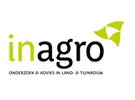The Aquavlan2 project partners support the development of the Flemish and Dutch aquaculture sector through research and individual supervision. In a sounding board group, entrepreneurs and researchers from the aquaculture sector discuss the recent developments in the project. They met again on Friday, March 22.
Six subjects filled the program from sustainable fish feed to preventing a muddy taste. The late afternoon revolved around aquaponics.
Greenhouse growers join in
There was a lot of interest for the sounding board group meeting in Kruishoutem. A broad audience of seventy fish farmers, researchers at universities and practice centers, project developers, government employees and start-ups in the aquaculture sector from Flanders and the Netherlands expressed interest in the results of the project. During lunch there was the opportunity for networking and to pick up ideas from demonstrations of research results. A dozen greenhouse growers joined in the late afternoon for an educational visit to the impressive aquaponic system of Aqua4C and Tomato Masters.
Final stretch to useful research results
In Aquavlan2, the project partners look for answers to questions from Flemish and Dutch fish farmers. The project is now in its final stretch to the finish line. The researchers are completing their research and will share their results with the aquaculture sector. The latest studies provide concrete insights in sustainable fish feed, shellfish feed and muddy taste prevention, among other things.
Aquaponics: from theory to practice
Aquavlan2 also examines the potential of aquaponics to close cycles in freshwater aquaculture. That is why the afternoon of the sounding board group meeting revolved around this subject.
A major challenge in aquaponics is the impact of the sodium content of the fish water on the fruit vegetables. Depending on the type of fish and breeding technique, the sodium content in the residual water of fish farming may vary. Inagro and PCG investigated how fruit vegetables deal with the build-up of the sodium content in a hydroponics system with the reuse of the drain water. Inagro grows pike perch. PCG works with jade perch, a type of fish on a vegetarian diet, which results in a low sodium content of the residual water.
Inagro and PCG saw no difference in the yield and taste of the tomatoes. At Inagro the fruits were even of better quality because there was less tip rot. Tests at PCG experienced the same amount of tip rot as with a test in a standard hydroponic system. Tests are still underway with cucumber and soon PCG will also look into the possibility of linking fish farming and bell pepper cultivation.
Aqua4C-Tomato Masters
To link the theory to practice, the sounding board group and interested greenhouse growers visited the largest aquaponics set-up in Europe. Fish farm Aqua4C grows jade perch with heat, electricity and rainwater from Tomato Masters. After use, the nutrient-rich water is returned to the grower. The water has a high concentration of nitrogen, phosphorus and potassium. Ideal for tomato cultivation.
Researchers and companies getting started with last vouchers
At the end of February, the Aquavlan2 voucher committee met for the last time. Four vouchers have been approved. The Flemish companies Trevi, Lambers-Seghers and Smart Farmers, together with the Dutch companies Yara Sluiskil, Kordator, Alltech Coppens and Fry Marine receive support with the implementation of their voucher.
The voucher committee has awarded a total of fifteen vouchers to nineteen companies. Three vouchers have now been completed. The results of an initial study show that insects and duckweed have potential in an aquaponic system. A second study shows that there is less mortality in marine fish larvae thanks to the optimization of rotifer cultivation. And as part of a third voucher study, the cultivation of microalgae was made more profitable through LED lamps and a new nutrient solution.
Photos: Inagro
For more information: 
Inagro
www.inagro.be
info@inagro.be
